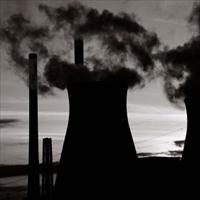WEST AFRICA: Taking on climate change as a region

Climate experts and ministers in West Africa have committed to coordinating national efforts to fight climate change, at the conclusion of an Economic Community of West African States (ECOWAS) meeting in Benin’s economic capital, Cotonou, on 22 October.
Benin’s UN Development Programme representative, Edith Gasana, told participants “no country will be able to handle the struggle alone.”
Experts on the UN-convened independent climate panel, Intergovernmental Panel on Climate Change (IPCC), wrote in their most recent report that warming global temperatures can cut West African agricultural production by up to 50 percent by the year 2020, in a region that according to the 2008 Global Hunger Index already has the most severe hunger in the world.
Rice prices have quadrupled worldwide in the last two years, according to the UN Food and Agricultural Organization (FAO), hitting rice import-dependent countries at a time when fuel prices have also climbed.
At the end of the five-day ministerial meeting, ECOWAS members agreed to create a regional structure that will “allow West Africa to have one voice in international climate change negotiations,” said commission president, Mohamed Ibn Chambas. The officials did not set a timeline.
At the December 2007 UN climate change conference in Bali, Indonesia, more than 180 countries set a two-year deadline – by the next UN climate change conference in Copenhagen, Denmark – to agree on international standards to fight climate change.
Chambas added that any West African climate change control strategy should have as its goals poverty reduction and improved food security through better water and energy management.
Commmunicate- don't duplicate
Benin’s Minister of Environment, Juliette Koudénoukpo, told IRIN a coordination strategy, rather than institutions, is what has been missing in West Africa. “We decided not to create any more institutions in the region for the pleasure of just creating more. There are already enough. What we need to do is reinforce the ones already in place.”
Justin Ahanhanzo, oceanographer with the UN Educational, Scientific and Cultural Organization (UNESCO), told IRIN it is important for countries in West Africa to have at their disposal proper technology to interpret climate change.
Environment Minister Koudénoukpo added that consistent regional dialogue is needed on climate change. “ECOWAS has recognised the necessity to institutionalise dialogue to give us the chance to meet regularly. This didn’t exist before. We just each went on our own way.”
 Back and Next - Back and Next
Back and Next - Back and Next See Also - See Also
See Also - See Also